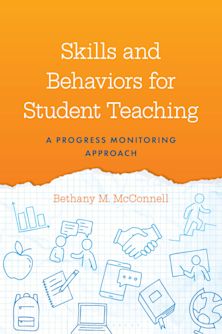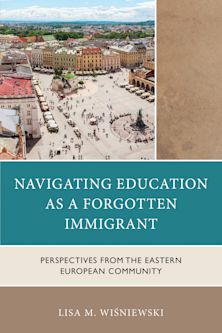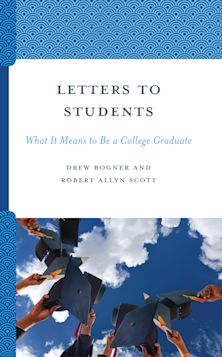- Home
- ACADEMIC
- Education
- Education - Other
- Critical Ethnicity
Critical Ethnicity
Countering the Waves of Identity Politics
Robert H. Tai (Anthology Editor) , Mary L. Kenyatta (Anthology Editor) , Margaret L. Andersen (Contributor) , Stanley Aronowitz (Contributor) , Lilia I. Bartolome (Contributor) , Antonia Darder (Contributor) , Michelle Fine (Contributor) , Pepi Leistyna (Contributor) , Donaldo P. Macedo (Contributor) , Linda C. Powell (Contributor) , Rudolfo D. Torres (Contributor) , Lois Weis (Contributor) , Kofi Lomotey (Contributor)
Critical Ethnicity
Countering the Waves of Identity Politics
Robert H. Tai (Anthology Editor) , Mary L. Kenyatta (Anthology Editor) , Margaret L. Andersen (Contributor) , Stanley Aronowitz (Contributor) , Lilia I. Bartolome (Contributor) , Antonia Darder (Contributor) , Michelle Fine (Contributor) , Pepi Leistyna (Contributor) , Donaldo P. Macedo (Contributor) , Linda C. Powell (Contributor) , Rudolfo D. Torres (Contributor) , Lois Weis (Contributor) , Kofi Lomotey (Contributor)
For information on how we process your data, read our Privacy Policy
Thank you. We will email you when this book is available to order
You must sign in to add this item to your wishlist. Please sign in or create an account
Description
As we enter the 21st century, the terms ethnicity and race are more often being used interchangeably. However, ethnicity and race have historically meant different things in the United States. What does it mean to refer to racial minorities as ethnic minorities? What are the social dynamics that have led to a broadening of the discourse on diversity and multiculturalism to include more types of culturally-based differences, while the practice of labeling those who are not white as "other" continues apace?
In Critical Ethnicity, leading scholars from several disciplines explore the interactions of ethnicity, race, and education in the United States, which are embedded within discussions of diversity, multiculturalism, and identity politics. Contributors to this volume, including Stanley Aronowitz, Lilia I. Bartolome, Donaldo Macedo, Michelle Fine, Lois Weis, Linda C. Powell, Margaret Andersen, Antonia Darder, and Kofi Lomotey, reveal how terms such as "at risk" and "culture of poverty" hide the insidious racism that underlies much of our social relations. This volume attempts to help educators interpret their locations in society, to expose power relationships, and to understand how all of us-irrespective of color, gender, age, ethnicity, and sexual orientation-are affected by hegemony and oppression.
Table of Contents
Chapter 2 The Fiction of "Diversity without Oppression": Race, Ethnicity, Identity, and Power
Chapter 3 Communities of Difference: A Critical Look at Desegregated Spaces Created for and by Youth
Chapter 4 Dancing with Bigotry: The Poisoning of Racial and Ethnic Identities
Chapter 5 Between Nationality and Class
Chapter 6 Investigating Academic Initiative: Contesting Asian and Latino Educational Stereotypes
Chapter 7 Racenicity: The Relationship Between Racism and Ethnicity
Chapter 8 Shattering the "Race" Lens: Toward a Critical Theory of Racism
Chapter 9 Reflections on Conventional Wisdom
Chapter 10 About the Contributors
Chapter 11 Index
Product details
| Published | 12 Aug 1999 |
|---|---|
| Format | Ebook (Epub & Mobi) |
| Edition | 1st |
| Extent | 220 |
| ISBN | 9780742575707 |
| Imprint | Rowman & Littlefield Publishers |
| Series | Critical Perspectives Series: A Book Series Dedicated to Paulo Freire |
| Publisher | Bloomsbury Publishing |
About the contributors
Reviews
-
Critical Ethnicity offers a ruthlessly honest and rigorous review of identity politics that exposes even the most hidden racist assumptions underlying widespread beliefs and practices commonly thought of as unimpeachable. This provocative collection of essays should be required reading in schools of education and halls of government across the nation.
Stephanie Urso Spina, The Graduate Center of the City University of New York
-
This book is simply the best treatment we have on issues of education, difference, and diversity.
Cornel West, Union Theological Seminary



































